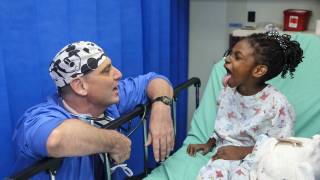$1.6 Million Dollars Awarded to Develop Staphylococcus Aureus Bacteria Vaccine

A global partnership led by Boston University is awarding $1.6 million dollars to Integrated Biotherapeutics (IBT) to expand the development of its vaccine against the Staphylococcus aureus bacteria.
Under this CARB-X initiative announced on August 15, 2019, IBT will expand its R&D to evaluate the efficacy of its vaccine, IBT-V02, against strains of the bacteria found in developing nations.
IBT-V02 is a multivalent toxoid vaccine indicated for the prevention of recurrent skin and skin structure infections (SSSI) caused by Staphylococcus aureus. IBT-V02 is the only entirely toxoid vaccine for S. aureus currently under clinical development.
Additionally, IBT will also explore the development of a freeze-dried version of the IBT-V02 vaccine so that it can be used where cold storage systems are not available.
This funding is in addition to an award of up to $8.5 million announced by CARB-X in 2017 to support the development of the IBT’s innovative vaccine.
“A vaccine to prevent infections caused by Staphylococcus aureus, including drug-resistant strains, could save the lives of thousands and curb the spread of the bacteria and drug resistance,” said Kevin Outterson, Executive Director of CARB-X and Professor of Law at Boston University, in a press release.
“IBT’s plan to develop its vaccine to prevent these infections in all corners of the world reflects the kind of creative thinking we need in the global fight against drug resistance.”
“Effective vaccines can prevent life-threatening bacterial infections and help reduce overuse and misuse of antibiotics, which is a particular problem in many developing nations and a threat to global health security as it fuels the spread of antibiotic resistance,” said M. Javad Aman, IBT President and CSO.
The science of preventing bacterial infection is challenging.
Vaccines have been developed to prevent bacterial infections such as diphtheria and tetanus.
But, past efforts to develop a vaccine to prevent S. aureus have failed.
S. aureus bacteria secrete a wide range of toxins that can destroy tissue, disable the patient’s immune system and help bacteria spread through the body.
MRSA bacteria cause a range of serious illnesses, from skin and wound infections to pneumonia and serious bloodstream infections that can cause sepsis and death.
Sepsis, which occurs when the body’s response to an infection injures its own tissues and organs, is a leading cause of death, particularly in the developing world among infants and children.
An estimated 3 million newborns and 1.2 million children suffer from sepsis globally every year.
Recently published studies indicate that resistant pathogens, including MRSA, are increasingly common causes of newborn sepsis in particular, and likely contribute to excess mortality in this most vulnerable population.
Global data on the impact of S. aureus bacteria is lacking.
In the US alone, the US Centers for Disease Control and Prevention (CDC) estimates that 80,461 MRSA infections and 11,285 related deaths occurred in 2011.
The CARB-X portfolio is the world’s largest antibacterial early development portfolio. It currently has 30 active projects in five countries and is expected to grow significantly this year.
CARB-X is led by Boston University and funding is provided by the Biomedical Advanced Research and Development Authority (BARDA), part of the Office of the Assistant Secretary for Preparedness and Response (ASPR) in the US Department of Health and Human Services , the Wellcome Trust, a global charity based in the UK working to improve health globally, Germany’s Federal Ministry of Education and Research (BMBF), the UK Department of Health and Social Care’s Global Antimicrobial Resistance Innovation Fund (GAMRIF), the Bill & Melinda Gates Foundation, and with in-kind support from National Institute of Allergy and Infectious Diseases (NIAID), part of the US National Institutes of Health (NIH). CARB-X is headquartered in the Boston University School of Law.
Our Trust Standards: Medical Advisory Committee







